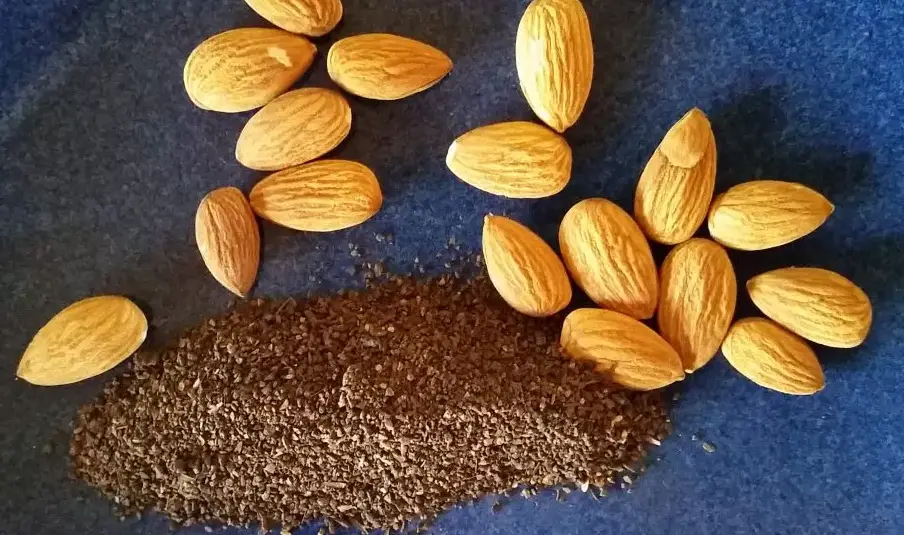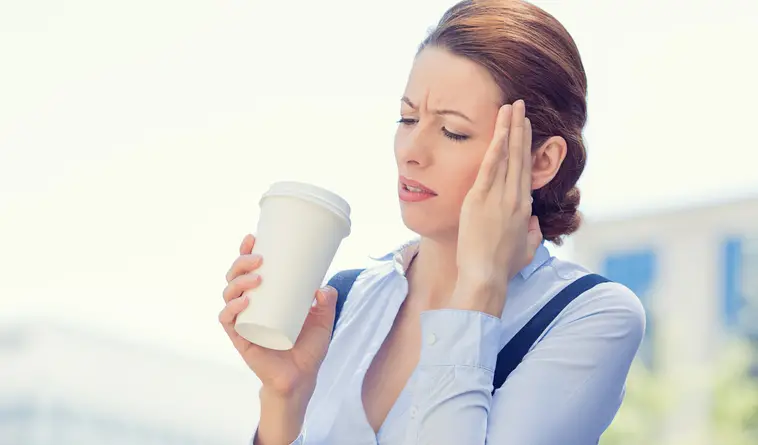Caffeine Headache Cure – 12 Ways To Cure Too Much Caffeine Headache
Caffeine headaches are old indications of the caffeine withdrawal; they are a set of symptoms which can strike these people who reduce or stop permanently their supply of caffeine. These individuals who drink quite a lot of coffee on regular basis can build up caffeine headaches.
Caffeine blocks the action of adenosine which is a mixed element which usually expands blood liners. When people drink caffeine, their bloodlines squeeze, for a long time, and after that, the body will create sensitivity to adenosine in reaction to the steady blocking caused by caffeine. If a person stops drinking caffeine or they change their amount of drinking, the blood liners enlarge so much, so the sensitive increased on the body will allow the adenosine to work and so on the caffeine headache develops.
Someone with a caffeine headache can experience a soft headache which increases into a throbbing, regular pain. For the reason that people cannot understand how much caffeine can influence the body, they cannot realize straight away that a headache it is caused by the use of coffee, tea or any other item for consumption that includes caffeine on their ingredients.
Contents
Caffeine Headaches Causes
As stated previously caffeine headaches are a symptom of caffeine withdrawal but how does the withdrawal of caffeine cause headaches? In the bod, there is a compound known as adenosine in simple terms adenosine dilates the blood vessels to allow better circulation of blood throughout the body. One of the side effects of consuming caffeine is that it blocks the effects of adenosine this means that over a period of time your blood vessel constricts lowering your blood circulation rate. Whenever you stop consuming caffeine your blood vessels will go from constricted to dilated this is what causes a headache to take place.
Caffeine Headaches Symptoms
Most of the time when people are suffering from a caffeine headache they don’t actually realize that their headache is being caused by caffeine withdrawal. It’s important that when you’re suffering from a headache you know the cause of that headache, that’s the only way you will be able to prevent them in future. There are a few ways to tell if your headaches result from caffeine withdrawal, the first one is obvious to ask yourself in the past day or so have I consumed substantially less caffeine than usual? If the answer is yes then there’s a good chance your headache is a result of caffeine withdrawal. Another way to tell if your headache is a result of caffeine withdrawal is by looking at other caffeine withdrawal symptoms to see if your suffering from them. Some of the most common caffeine withdrawal symptoms include pain and stiffness in muscles, constipation, insomnia and general flu-like symptoms. If you’re suffering from any of those symptoms along with your headache then the chances are your headache is a result of caffeine withdrawal.

Caffeine Headache Cure
How can caffeine headaches be treated?
- Over the counter pain medicine
Probably the easiest and quickest way of treating your headache is by taking some aspirin.
- Drinking water:
If you want to stay away from medicated solutions and go for a more natural solution then try drinking lots of water.
- Try some sleep.
- Avoid foods contain caffeine.
- Eat foods contain magnesium (Banana and Yogurt).
- Lavender oil.
- Food containing vitamin E and B.
- Calcium, Potassium, and Zinc rich foods.
- Peppermint and Ginger tea.
- Mediation and yoga.
- Make sure your lunch has a strong protein component in it.
- Reduce caffeine gradually or avoid it completely.
How To Prevent Caffeine Headaches?
When consuming caffeine try to keep it more consistent, don’t drink 5 or 6 cups of coffee every day for a year then suddenly stop. If you’re wanting to cut your levels of caffeine consumption down then do it gradually, don’t go from 6 cups of coffee every day to none in the space of 24 hours do it over a week are two. If you don’t stop your caffeine intake suddenly and cut back over a space of several days then you should be able to avoid most of the caffeine withdrawal symptoms.
If you drink a cup of coffee it looks really safe, you might not think that in the cup there is nothing wrong and nothing bad that could happen by drinking it. But there is a very enslaving habit. Drinking coffee or drinking other drinks that contain caffeine is really tough to break especially when you always are used to it, but as any other habit that can be break also and consuming too much caffeine can be done as well.
Caffeine is the most popular medication that has been used by human beings. People very often consume caffeine, from coffee, tea, energy drinks, and chocolates. In order to help you to break the caffeine addiction it really important that you stop it by reducing every time less and less, by drinking in small cups every single day. Try to mix your coffee with something that does not contain a single bit of caffeine on it. Also, try to drink only caffeine free pop or drinking water. In this time when you are trying to break your caffeine addiction, you might still have problems with caffeine withdrawal signs. In order to forget about your symptoms that are caused by caffeine than it’s important to sleep a lot and to do a lot of exercises.
It’s really important that to start to remove all the products that contain caffeine in your home. One of the most important things to be able to stop your caffeine addiction is to be focused on your aim and approach. When you feel that you want a coffee it’s a good idea to try and to meditate, all that you need to do it is to close your eyes and to take a deep breath. This can help to divert your attention from the craving for caffeine.
Conclusion:
A caffeine headache is a term given to headaches resulting from the withdrawal of caffeine. If your body is consuming caffeine on regular bases and all of a sudden you stop consuming caffeine you may suffer a range of withdrawal symptoms, headaches being one of the more common symptoms. If you’re only drinking 1 or 2 cups of coffee a day then the chances are you won’t need to worry about getting headaches however if you’re drinking more than 2 cups a day that’s when it can become a problem. Remember headaches are a symptom of caffeine withdrawal it is not a side effect of drinking too much coffee. It is also important to remember that you will find caffeine in other products other than coffee, for example, chocolate, fizzy drinks, sweets/candy, tea and energy drinks.


